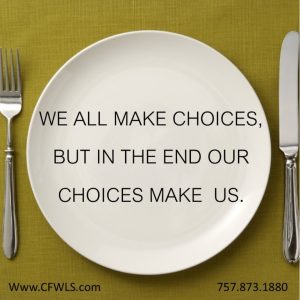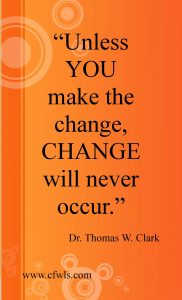We’re all guilty of overeating. Overeating is eating more than what’s on your diet plan. Or, it can be just eating more than what you had planned. It’s also when you continue to finish your meal even though you feel full partway through it. Binge eating is different. It’s an extreme form of overeating. It’s eating an abnormally large amount. For someone who has a normal size stomach and hasn’t had weight loss surgery, that would be consuming around 5000 calories. It means you are feeling out of control and you should see a mental health professional. If you have a small stomach from weight loss surgery then you can’t really ever binge eat, right?! The issue isn’t the amount. It’s the feeling out of control with your eating. If that is the case you need to seek professional help. It’s out of the scope of this discussion.
Sometimes we “justify” overeating. When you go out to eat, you want to get what you’ve paid for. Maybe you’re celebrating a birthday or anniversary. When you go on vacation and let loose. Someone might be urging you to eat. Another justification is that the food is free. When this happens we often get into the mentality of, “Since I’ve strayed, I might as well just keep eating.” “I fell off the wagon and ate the candy bar. I might as well eat the whole bag of candy bars.” We discourage that type of “all or nothing” thinking.
There are lots of different causes of overeating. Some of the common causes are: stress, irritation, frustration, habit, boredom, overwork, and worry. Often it has to do with some type of emotion. We’re going to go over 10 common “triggers” for overeating and also what you can do about them.
 The first common “trigger” for overeating is boredom. It leads you to TV watching (TV commercials) which leads you to the refrigerator/pantry. What can you do? You can watch commercial free TV and prepare healthy snacks to keep on hand (cut up veggies are a good choice).
The first common “trigger” for overeating is boredom. It leads you to TV watching (TV commercials) which leads you to the refrigerator/pantry. What can you do? You can watch commercial free TV and prepare healthy snacks to keep on hand (cut up veggies are a good choice).
The second “trigger” is feeling deprived. This tends to come about by completely avoiding certain foods. We talk a lot here about avoiding simple carbohydrates and processed foods. We’re trying to avoid a whole category of foods. It’s easier said than done. It’s difficult for an extended period of time. I’m not a big fan of true “deprivation diets.” It’s the thinking that, “I can never have this again because I’m on a low-carb diet.” “I can never have ice cream.” You want to focus on a balanced diet and healthy eating and exercise habits. We also need to have that portion control. “I’m just going to have this little bit…” Deprivation doesn’t work very well. There is an exception to that. The exception is if you have a true trigger food. That means if you have one piece of that trigger food I’m going to eat the whole bag. You need to avoid those foods.
The next trigger for overeating is feeling self-disgust or hating your body. What you’re really doing is focusing on what’s wrong with your body and some societal ideals. We often see the societal ideals on TV. Realize your body is only a portion of who you are. Your body is just a part of you. It’s not all of you. If this is a significant problem you should seek professional help. I see this in many patients who have lost a lot of weight. They still see themselves as who they were, not who they are. It usually fixes itself over time.
Carbohydrate sensitivity or glucose intolerance are the next common trigger. This means you’re prone to big blood sugar swings. This is a true physiologic trigger. Blood sugar swings lead to insulin swings resulting in hunger/cravings. It’s really hard to ignore this. If it comes from blood sugar swings, the answer is to avoid blood sugar swings. Avoid simple carbs and increase your protein intake. If you’re having carbs they should come from vegetables. Chromium is a mineral that helps with blood sugar swings. Usually you need to take it three times a day for the blood sugar swings.
 Another trigger is Habits. It’s what “you’ve always done.” It’s like when you go to the movies and always have a tub of popcorn. Try to engage your mind and hands in some type of new activity. It could be as simple as reading a book or playing an instrument. You need to break the habits or break the routine.
Another trigger is Habits. It’s what “you’ve always done.” It’s like when you go to the movies and always have a tub of popcorn. Try to engage your mind and hands in some type of new activity. It could be as simple as reading a book or playing an instrument. You need to break the habits or break the routine.
Next is depression and/or lack of energy. You often turn to food as that “pick me up.” Yes sugar is an energy source. Your body has plenty of energy. You just need to access that energy that’s there, meaning the fatty tissue. In order to accomplish this, the carbohydrates need to be low. The food gives you a pick me up but it’s not a long-term answer. Try to identify those low energy times of your day and take a brisk walk. Don’t ignore depression. It can happen frequently in a weight loss plan. Don’t ignore it. It tends to be relatively fleeting. It’s very real for someone who’s losing weight fairly quickly that they get a chemical imbalance. Seek professional help.
Needing comfort is the next trigger for overeating. There are pressures at work and home. There’s lack of appreciation. Everyone tends to have their favorite comfort foods. Baked potato to pizza to ice cream. How do you beat it? Take some time out for yourself. Go get a massage for pedicure/manicure. Make sure you schedule “me” time.
Feeling overwhelmed can be a trigger. It happens sometimes a couples times a day for me. You have too much to do and not enough time to do it in. Realize you can only do so much. To get a project done we have to make the first step. The 2nd and 3rd steps will be easier. We all have a lot to do and can’t get it all done. It’s often prioritizing.
More common trigger: being emotional. Emotions tend to bring on eating; being upset, hurt, anxious, stressed, sadness, or happiness. Go outside for that quick walk. Remove yourself from the situation if it’s a negative emotion. Deep breathe/stretch. Exercise is a great stress reliever.
Lack of willpower is a common trigger for overeating. Willpower is like a muscle. We can train ourselves to use and slowly improve on it. Exercise your will power. It will get stronger. How many times have I heard, “Gee I don’t have any willpower?” Everybody has willpower, it’s just how much. Every Wednesday I was fasting. I did some videos on fasting. It works. After a while you get used to it. Anything we practice we get better at. Fasting got easier for me as time went on. If you think about it, we make thousands of food decisions just about every day. When to eat? How much to eat? What to eat? Is it time to eat yet? Fasting frees up a lot of time and energy. There’s no thinking about food because it’s not happening. You just have to figure out what the best times are for you to do those things. I did videos on Losing Weight USA as well as our YouTube site. It can be very helpful with weight loss. Time yourself. I assure you no one has ever starved in a few hours.
Here are some tips to avoid overeating. These are things we should ask ourselves all the time.
Get in the habit of asking yourself 2 questions: why am I eating and am I still hungry? Part of it may be that it’s time for lunch. Maybe you haven’t eaten all day. Literally bite-to-bite you can ask yourself, “Am I still hungry?” You want to stop when you feel satisfied. Make sure you’re avoiding the “overeating” foods; simple carbs. If you’re going to overeat, have more protein. The simple carbs are like a drug. If you have a little bit, you’re going to want more. You’ll crave more. One of my favorite eating rules is eat only when seated at a table. The other eating rule is always use utensils and a plate. That’s gets away from wandering through the pantry and grabbing something or eating something over the kitchen sink. It doesn’t necessarily mean it will change what you’re eating. It will change what you’re eating if you have to be seated at a table and use utensils and a plate, it gets rid of a lot of the eating on the fly. There are a lot of decisions that have to be made when you eat that way. For example, if you grab a handful of M & M’s. You put them on a plate, get a spoon and you sit down at a table to eat them. By the time you actually do that, you may not even eat them. If you just walk by and grab a handful, you’re likely to eat more because you’re eating them “on the fly.” It’s an eating rule that is very simple but effective.
Avoid “family style” eating. This means bringing all the food to the table and passes it around until it’s all gone. You need to leave the food in the other room, make your plate, and go sit down and eat it. You can still get more but you have to physically get up, go into the other room, stand there and figure out what you’re going to put on your plate, and walk back to the table and eat. This is better than having a person pass you the food dishes at the table. Little things might be what the difference is between being successful and unsuccessful. Use small plates and small utensils. Remember propinquity. It’s about shaping our environment for success. Measure your portions. You will likely be at least 30% off when “eyeballing.” We all tend to drift with portion sizes. Eat slowly. Chew slowly and set your utensils down between bites. Give your body time to tell your mind that you’re done. Wait 10-15 minutes before you get more. Ask yourself, “Why do I need more?”
For cravings use distractions. You need to use that willpower muscle. Change your activity. Distract yourself until the cravings go away. Chromium can help. You usually have to take it 3 times a day. Practice! Always leave a little food on your plate. If you’re out at a restaurant and you leave some food on our plate, typically people aren’t going to be bugging you about bringing you more food. Finally, a carb blocker can be helpful. Also an appetite suppressant, especially for cravings. The FDA regulates appetite suppressants very carefully. So there are a number of hoops to jump through, but they’re all very doable.
Remember, you do NOT have to be a member of the “Clean Plate Club.” It’s really not going to help any starving children anywhere!
Questions? “What’s a good snack food to avoid blood sugar swings?” Well anything that has carbohydrates will typically cause blood sugar swings. Simple carbs are much worse than complex carbs. It depends on what you tend to drift toward. The snack should be low-carb. That can be meat, cheese, or eggs. A lot of that is snack-worthy. Nuts are OK as long as you limit them. Be careful there. Cut up veggies are good. The flip side is that any food potentially can cause a blood sugar swing, even something with 0 sugars in it. I see this all the time with diabetics drinking why protein shakes. Typically 95% of my surgical patients are really sensitive to carbohydrates. Whey is efficiently absorbed. If you drink a whey protein shake that’s filled with amino acids and your body doesn’t need all those amino acids at that one time, your body will just convert it to sugar. Your body is good at doing that. Protein with any carbohydrate will smooth out the blood sugar somewhat too.
 If you think of other things, just give us a yell 757-873-1880. Stop by and get your body comp done. Remember! It’s your life. Make it a healthy one! Have a good evening everyone. Take care!
If you think of other things, just give us a yell 757-873-1880. Stop by and get your body comp done. Remember! It’s your life. Make it a healthy one! Have a good evening everyone. Take care!






 Cat Keller has a wealth of experience in marketing, e-marketing, advertising and customer service and manages our Weight Loss Nutritional Store. She is always planning something fun and exciting. special events, discounts, giveaways – it’s never a dull moment. She is happy to help you with questions you may have regarding our products or services. Cat is a graduate of William & Mary, where she studied Government/Pre-Law and minored in Marketing.
Cat Keller has a wealth of experience in marketing, e-marketing, advertising and customer service and manages our Weight Loss Nutritional Store. She is always planning something fun and exciting. special events, discounts, giveaways – it’s never a dull moment. She is happy to help you with questions you may have regarding our products or services. Cat is a graduate of William & Mary, where she studied Government/Pre-Law and minored in Marketing.